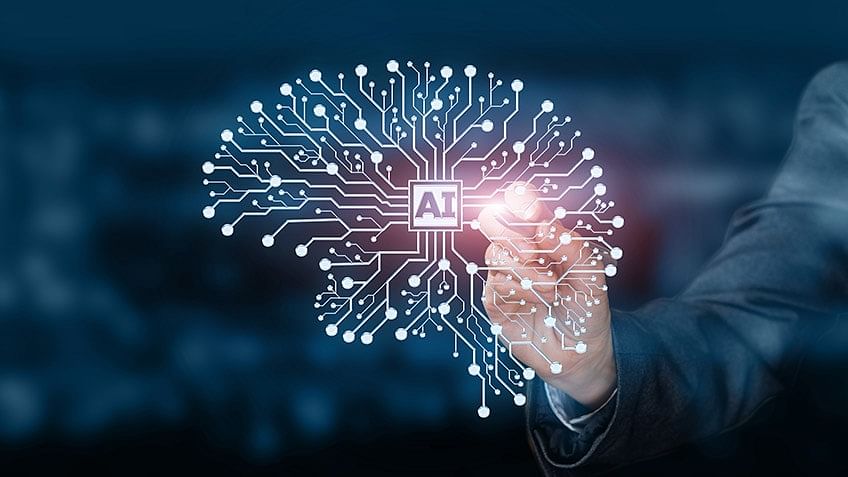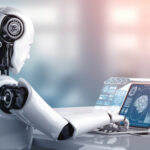Artificial Intelligence (AI) is not just a buzzword; it’s a transformative force reshaping numerous sectors, with engineering standing out as a primary beneficiary. The integration of AI into engineering is more than just a technological upgrade; it represents a paradigm shift. It equips engineers with sophisticated tools, enabling them to analyze and optimize complex systems, thus merging the realms of traditional engineering practices with cutting-edge computational techniques.
One of the most significant milestones in AI’s journey has been the advent and rise of Machine Learning, and within it, the subset known as Deep Learning algorithms. These algorithms, over a span of a decade (2012-2022), have metamorphosed from being mere subjects of academic curiosity to becoming indispensable tools in real-world applications. Their practicality and efficiency have caught the attention of global industrial behemoths, with names like Bosch and Airbus leading the charge in harnessing Deep Learning’s potential.
Decoding the Growing Emphasis on AI in Engineering
Several compelling reasons underscore the growing emphasis on AI in engineering, playing a major role in the fourth industrial revolution :
- Economic Viability: One of AI’s standout benefits, especially when coupled with Machine Learning models, is its ability to drive down operational costs, making processes leaner and more efficient.
- Elevated Quality Standards: AI doesn’t just streamline processes; it enhances them. Through AI-driven methodologies, there’s a tangible elevation in the quality of products and services.
- Driving Sustainable Growth: The global market today is fiercely competitive. For companies to not just survive but thrive, innovation is key. AI offers a blueprint for sustainable growth, emphasizing continuous innovation over transient strategies like mere price reductions.
For engineers, this AI-driven era is a double-edged sword. On one side, it offers unparalleled opportunities to be at the cutting edge of technological evolution. On the flip side, it raises existential questions about the role of human engineers in an increasingly automated world.
A Glimpse into the Multifaceted Role of AI in Engineering
The role of AI engineers is diverse and multifaceted:
- Crafting Machine Learning Algorithms: At the heart of AI’s magic are algorithms. AI engineers are tasked with designing systems that autonomously learn and evolve from data, eliminating the need for constant human oversight.
- Pioneering Natural Language Processing Systems: In an interconnected world, communication is key. AI engineers are at the forefront of creating systems, like chatbots, that can seamlessly understand and respond to human language, bridging the gap between man and machine.
- Advancing Computer Vision Systems: The ability to interpret visual data is crucial in numerous applications. AI engineers are pioneering systems that can analyze visual data, with implications ranging from advanced surveillance to intricate industrial design.
- Broad-Spectrum Implications of AI and Machine Learning in Engineering
AI’s influence isn’t restricted to niche areas; its impact is broad and transformative:
- Empowering Decision-Making: With AI’s prowess in handling and analyzing vast datasets, decision-making processes are more informed, data-driven, and precise.
- Revolutionizing Design Paradigms: AI is playing a pivotal role in design optimization. For instance, it can be harnessed to determine the optimal shape for a mechanical component, balancing efficiency with aesthetics.
- Upholding Quality Standards: Through preemptive detection of potential design flaws or inefficiencies, AI ensures that products meet the highest quality standards.
- Automating the Mundane: Routine tasks, which once consumed significant time and resources, can now be automated using AI, liberating engineers to focus on more intricate and innovative tasks.
Diving into the Job Profiles in an AI-Centric Engineering Landscape
- Design Engineer: These professionals are the backbone of product development, focusing on the conception, design, and refinement of industrial products. They harness tools like CAD and CAE software, translating ideas into tangible products. However, the complexity of some tools means that their full potential remains untapped by a significant portion of engineers.
- Machine Learning Engineer: These are the architects of the AI revolution. They design, fine-tune, and deploy machine learning models. Their projects span a wide spectrum, from algorithms for autonomous vehicles to intricate recommendation systems for online platforms. Their toolkit includes a robust foundation in computer science, mathematics, and proficiency in languages like Python.
Synergizing Design and Machine Learning Engineers for a Cohesive Future
Platforms like NCS Expert are emblematic of the future, fostering a seamless collaboration between Design and AI engineers. NCS Expert is a treasure trove of features, from an intuitive Python-based interface to pioneering algorithms, ensuring that the two domains of AI and Design Engineering can work in harmony. This integrated approach taps into the collective expertise of data scientists and senior simulation experts, maximizing value delivery.
Success Stories: A Testament to AI’s Potential
The real power of AI in engineering is best illustrated through success stories where AI-driven solutions have been seamlessly integrated into traditional engineering processes. Platforms like NCS Production are turning dreams into reality, offering rapid simulations in diverse fields. These platforms are fulfilling the long-standing expectations of Design Engineers and showcasing the transformative power of AI in the realm of engineering.
In summation, the confluence of AI and engineering heralds an era where technological advancements are the driving force behind sustainable growth, product quality, and relentless innovation.







